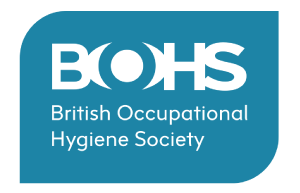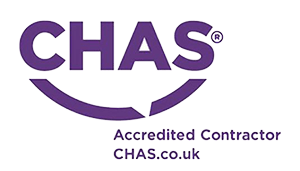Call the experts on: 01706 878 330
The Breathing Air Quality Test (BAQ Test) is vital for ensuring the safety and legality of your spray booth and paint/product spraying process. Unlike the Thorough Examination Test for LEV systems, which needs to be completed every 14 months, the BAQ Test must be completed every 3 months and is a requirement under BS EN12021:2014. EN12021 requires that air be tested for contaminants including carbon dioxide, carbon monoxide, oil, odour, and water.
BS EN12021:2014 is the British standard that must be adhered to by all compressed air RPE breathing equipment. This standard states that any compressed air used for breathing equipment must not contain harmful levels of contaminants if they could have a damaging effect on the operative.
Substance | Criteria | Reason for Test |
Odour | Free from unsatisfactory odour | Unusual odour is distracting and unpleasant, and can often point to an underlying problem |
Oxygen | 21% + / - 1% | Low oxygen presents a risk of asphyxiation whilst high oxygen carries a flammable risk |
Carbon Dioxide | ≤ 500 PPM (parts per million) | At high levels, carbon dioxide can cause intoxication and needs to be monitored |
Carbon Monoxide | ≤ 5 PPM (parts per million) | High levels of carbon monoxide result in a loss of consciousness |
Oil | ≤ 0.5 mg/m3 | Oil in the air supply damage breathing apparatus, as well as leading to ill health if inhaled or ingested |
Water | Where apparatus is stored at a known temperature the pressure dewpoint shall be at least 5⁰C below the likely lowest temperature. Where conditions of storage of any compressed air supply is not known, the pressure dewpoint shall not exceed -11⁰C | Where the pressure dew point is met, water vapour is turned into water droplets and can be inhaled by the operator. If free water forms inside breathing equipment, this could result in internal corrosion, leading to a malfunction of equipment |
The purpose of conducting a Breathing Air Quality Test every quarter is to ensure that the control measures you have put in place deliver the air quality required by your operatives.
The Health and Safety Executive document “Respiratory Protective Equipment at Work” (HSG53) states that the tests should take place at least every 3 months, and more often when a consistent quality of air cannot be assured. It also states that records of these tests must be kept for a minimum of five years so that it can be certified that all the requirements have been met.
To help you carry out the regular tests, as required by the BS EN12021, Beta Group’s engineers carry a conveniently packaged digital Breathing Air Quality Test kit that comes with everything required for an ‘on the spot’ test. If you need to complete your BAQ Test, contact Beta Group today. It is vitally important every spray booth breathing air point in the UK has a BAQ Test completed before it is used by operatives.
Due to being an ‘on the spot’ test, only a sample of the air is tested, not adequately proving that the air will be safe to breathe for the next 3 months. Changes in the environment, ventilation, compressors, filters, and vehicle movement can cause contaminates to vary from over time. It is therefore important that the test should be considered as part of the risk control measures rather than the sole control.
The Breathing Air Quality standards also differ depending on where a company is based. In the USA and Australia, the parts per million figures for CO2 and CO is higher than it is for the UK.
Europe | USA | Australia and New Zealand | |
BS EN12021 & EN12021:2014 | CGA G-7.1-2011 | AS-NZS 1715: 2009 | |
Carbon Dioxide | ≤ 500 PPM | ≤ 1000 PPM | ≤ 800 PPM |
Carbon Monoxide | ≤ 5 PPM | ≤ 10 PPM | ≤ 10 PPM |
The figures above are not only used within the automotive industry but are also the standard set within the scuba diving industry and take into account the amount of time an operative is exposed to toxic gases that differ with atmospheric pressure. As this covers a vast array of applications, the carbon dioxide level of 500ppm for spray booth RPE is relatively low, particularly given the global average carbon dioxide concentration is currently 407ppm.
It is a company’s responsibility to provide clean breathing air to operatives that work in spraybooths, using compressed air RPE. Failure to provide clean air and maintain equipment and records in accordance with EN12021 could risk harm to employees and risk legal action.
Our highly qualified group of engineers are based throughout the country and have worked within the spray booth industry for several years. Our engineers complete all services to the highest standard and are always on hand to offer professional guidance and advice, ensuring that our customers are kept up to date with the changes and requirements of the current standards.
Beta Group offers Breathing Air Quality Testing nationwide to keep operators safe and to help bodyshops meet their legal requirements. If you have any questions about compressed air testing, or to book a test for your equipment, get in touch by calling 01706 878 330 or using our Contact Form.









